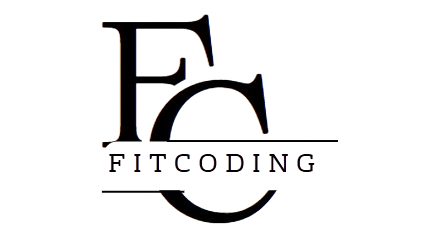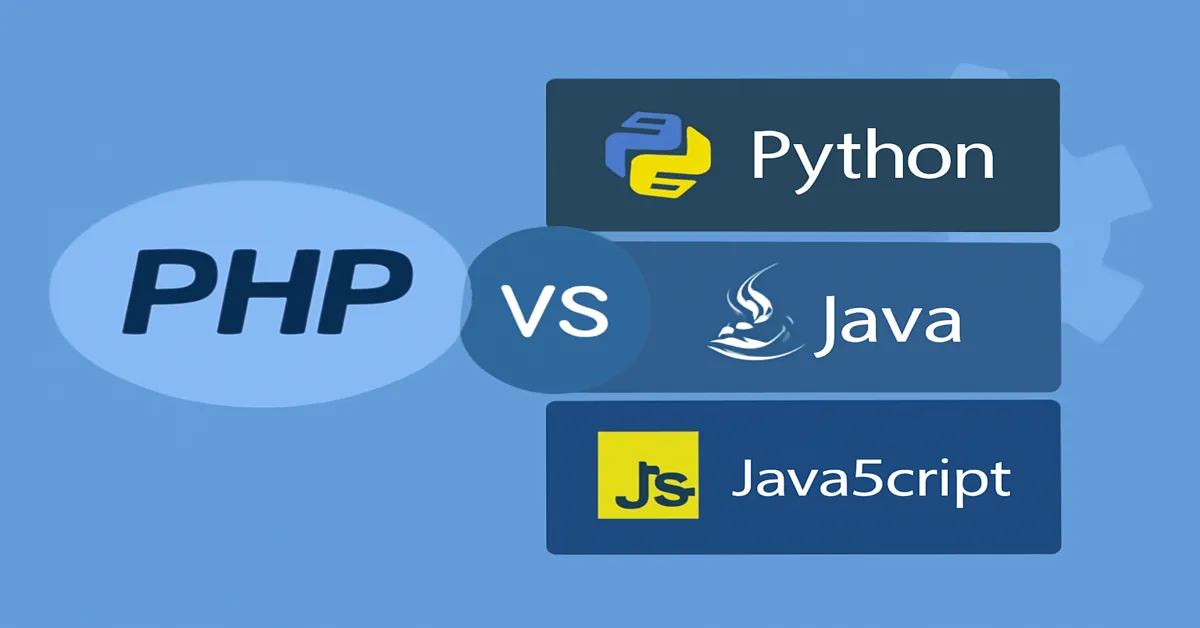When starting out in web development, one of the first decisions a developer must make is which programming language to learn. There are many options available for server-side programming, with each language offering its own set of advantages and disadvantages. Among these, PHP stands out as one of the most widely used languages for server-side scripting. However, PHP is not alone. It competes with other languages such as JavaScript (Node.js), Python, Ruby, Java, and C# – PHP vs. Other Server-Side Languages.
Each of these server-side languages has a unique approach to handling requests, managing databases, and interacting with users. Understanding these differences is crucial for new developers who are trying to choose the right language for their projects. This article will compare PHP with several popular server-side languages, highlighting the key differences and helping you understand which language might be best suited for your needs – PHP vs. Other Server-Side Languages.
1. PHP Overview: The Legacy and Evolution
PHP (Hypertext Preprocessor) is a server-side scripting language that has powered a large portion of the web for more than two decades. Originally created by Rasmus Lerdorf in 1993, PHP was designed to make dynamic web pages by embedding into HTML. Over time, it evolved into a full-fledged language with its own robust set of features, frameworks, and libraries – PHP vs. Other Server-Side Languages.
PHP has long been the backbone of many popular content management systems (CMS) like WordPress, Drupal, and Joomla. It also powers e-commerce platforms like Magento and WooCommerce, and it’s used by many small-to-medium-sized businesses for web development.
Key Features of PHP:
- Simple syntax: PHP’s syntax is straightforward and beginner-friendly, making it a popular choice for developers starting their journey in web development.
- Huge community support: PHP has an enormous community of developers, and there are extensive resources, libraries, and documentation available for learners.
- Integrated with MySQL: PHP works seamlessly with MySQL databases, making it ideal for database-driven applications.
- Widely supported hosting: PHP is supported by almost every web hosting provider, which makes it cost-effective for small developers and businesses.
- Open-source: PHP is free to use, and its open-source nature encourages contribution from developers around the world.
2. PHP vs. Node.js (JavaScript)
Node.js is a popular runtime environment that allows developers to run JavaScript on the server-side. It uses Google’s V8 JavaScript engine and is known for its event-driven, non-blocking I/O model, which makes it highly efficient for building scalable, real-time applications like chat apps, online games, and streaming platforms.
While PHP has traditionally been used for server-side scripting, Node.js offers the advantage of having a single language (JavaScript) running on both the client and the server, which simplifies development and can reduce context-switching for developers.
Key Differences:
- Concurrency and Performance: Node.js uses a non-blocking, event-driven model, which can handle many concurrent connections more efficiently than PHP, especially in real-time applications. PHP is synchronous, meaning it processes one request at a time.
- Language Consistency: With Node.js, developers use JavaScript for both client-side and server-side code. This consistency can make development easier and faster. In contrast, PHP requires developers to learn a new language for client-side scripting (like JavaScript) and another for server-side scripting.
- Ecosystem: Node.js has a growing ecosystem, particularly in the area of real-time applications. However, PHP still has a more established ecosystem for building CMS and e-commerce sites.
When to Use PHP or Node.js:
- PHP is ideal for projects that require fast, easy-to-implement content management systems (like WordPress) and database-driven applications.
- Node.js is better suited for applications with high concurrency or real-time features, such as chat applications, collaborative tools, and live-streaming platforms.
3. PHP vs. Python
Python is a general-purpose programming language known for its readability, simplicity, and extensive use in fields like data science, machine learning, and web development. With frameworks like Django and Flask, Python has become a strong contender for server-side web development as well.
Key Differences:
- Syntax and Readability: Python’s syntax is often considered more intuitive and user-friendly compared to PHP, especially for beginners. Python’s focus on code readability and its emphasis on using indentation rather than braces for code blocks makes it easy to learn and maintain.
- Use Cases: While PHP is primarily used for web development, Python is a more versatile language, with applications in scientific computing, data analysis, machine learning, and even artificial intelligence.
- Frameworks: Both PHP and Python offer powerful frameworks. Django and Flask are widely used in Python for web development, providing more flexibility in building applications compared to PHP frameworks like Laravel and Symfony, which tend to be more rigid but offer greater out-of-the-box features.
- Performance: Python tends to be slower than PHP in terms of raw performance due to its design and higher-level abstractions, though this is often negligible for most web applications.
When to Use PHP or Python:
- PHP is still the go-to choice for content-driven websites and applications, especially when using CMSs like WordPress or Drupal.
- Python is better suited for applications that require complex logic, such as data processing, machine learning, or scientific applications. It’s also ideal for APIs and microservices.
4. PHP vs. Ruby
Ruby is an elegant, object-oriented programming language designed for simplicity and productivity. It is often associated with the Ruby on Rails framework, which is one of the most popular frameworks for building web applications.
Key Differences:
- Frameworks: Ruby on Rails (Rails) is a highly opinionated framework that encourages convention over configuration, which speeds up development but can limit flexibility. In comparison, PHP has frameworks like Laravel and Symfony, which are more flexible and customizable.
- Community and Ecosystem: Ruby’s community is smaller than PHP’s, but it is known for its passionate developers and vast collection of gems (libraries). However, PHP still boasts a much larger community and a wealth of ready-to-use solutions for web development.
- Learning Curve: Ruby is more elegant and readable compared to PHP, which can make it easier for beginners to grasp. Ruby on Rails also provides more abstraction, meaning less manual configuration is needed to build an application.
When to Use PHP or Ruby:
- PHP remains the better choice for developers focused on content management and e-commerce platforms, especially with the widespread use of WordPress.
- Ruby is ideal for developers who want to build feature-rich applications quickly with a focus on simplicity, elegance, and maintainability. Ruby on Rails is particularly good for startups needing rapid prototyping.
5. PHP vs. Java
Java is one of the oldest and most widely used programming languages in the world. Known for its portability (via the Java Virtual Machine or JVM) and robustness, Java is often used for large-scale enterprise applications.
Key Differences:
- Performance: Java tends to have better performance due to its compiled nature, while PHP is interpreted at runtime. Java’s statically-typed nature helps detect errors at compile-time, whereas PHP is dynamically typed and can introduce runtime errors that are harder to debug.
- Complexity and Syntax: Java has a more complex syntax and requires more boilerplate code compared to PHP. For new developers, PHP’s simplicity and brevity make it an easier starting point for web development.
- Ecosystem: Java’s ecosystem is more geared toward enterprise-level applications and back-end systems. In contrast, PHP’s ecosystem is optimized for web development, especially for building content-driven websites and applications.
When to Use PHP or Java:
- PHP is suitable for smaller projects or content-based websites, and is perfect for developers who need quick, flexible web development solutions.
- Java excels in large-scale applications, such as enterprise software, mobile apps (Android), and highly complex back-end systems.
6. PHP vs. C#
C#, a language developed by Microsoft, is primarily used for building web applications using the ASP.NET framework. It is widely used for enterprise applications and integrates well with Microsoft products.
Key Differences:
- Platform Dependency: While PHP is platform-independent and runs on any server with PHP installed, C# and ASP.NET are traditionally tied to the Windows ecosystem (though .NET Core has made strides in cross-platform compatibility).
- Syntax: C# is a statically typed language, which offers better performance and fewer runtime errors compared to PHP’s dynamic typing. However, C# also requires more configuration and setup.
- Performance: C# offers superior performance in terms of raw processing power due to its compilation and the .NET runtime.
When to Use PHP or C#:
- PHP is ideal for rapid development and building content-driven websites where ease of use and flexibility are priorities.
- C# is better suited for enterprise-level applications, especially those that need tight integration with Microsoft technologies and a robust back-end structure.
7. Conclusion: Choosing the Right Language for New Developers
For new developers, choosing the right server-side language can be a challenging decision, and the best choice depends largely on the specific needs of the project. Each of the languages we’ve covered—PHP, Node.js, Python, Ruby, Java, and C#—has its strengths and use cases – PHP vs. Other Server-Side Languages.
- PHP remains the go-to language for content-driven websites, CMS platforms, and smaller web applications.
- Node.js is an excellent choice for real-time, event-driven applications and those who want to use JavaScript for both front-end and back-end.
- Python excels in versatility, making it ideal for a wide range of applications, including web development, data science, and machine learning.
- Ruby, with its powerful Ruby on Rails framework, is perfect for startups looking to build web applications rapidly.
- Java and C# are better suited for large-scale enterprise applications, with robust ecosystems and performance capabilities.
Ultimately, your decision should be influenced by the project type, your existing skill set, and the resources available to you. Each language has its own strengths, and there’s no one-size-fits-all answer. By understanding the differences, you can make an informed decision that will set you up for success in your web development career – PHP vs. Other Server-Side Languages.
Read:
Enhancing PHP Coding Efficiency: Techniques, Tools, and Best Practices
How to Work with Forms in PHP: A Beginner’s Guide
Creating a Futuristic Website with PHP: A Step-by-Step Guide for Modern Web Development
FAQs
1. What is PHP used for in web development?
PHP is a server-side scripting language primarily used for creating dynamic and interactive websites. It is widely used to build content management systems (CMS), e-commerce platforms, and other web applications, often integrated with MySQL for database management.
2. How does PHP compare to Node.js for server-side development?
PHP is traditionally synchronous, while Node.js uses a non-blocking, event-driven model, making Node.js more efficient for handling concurrent connections and real-time applications. PHP is ideal for content-driven websites, while Node.js excels in applications with high concurrency, like chat apps and live data streaming.
3. What is the main advantage of using Python for web development over PHP?
Python offers a more readable and user-friendly syntax compared to PHP, and it is often preferred for applications requiring complex logic, data processing, and machine learning. Python’s frameworks like Django and Flask provide greater flexibility for building scalable applications compared to PHP’s more rigid frameworks.
4. When should I choose Ruby over PHP for web development?
Ruby, particularly with its Ruby on Rails framework, is ideal for rapid development and prototyping. It is well-suited for building complex applications quickly, with a focus on simplicity and convention over configuration. PHP is better for content management-driven sites, while Ruby is often used for feature-rich, custom-built applications.
5. Is PHP still relevant for modern web development?
Yes, PHP is still highly relevant, especially for building content-driven websites, with widespread usage in platforms like WordPress and Magento. It remains a go-to solution for small to medium-sized businesses, and its robust ecosystem continues to evolve, with modern frameworks like Laravel improving its capabilities.











